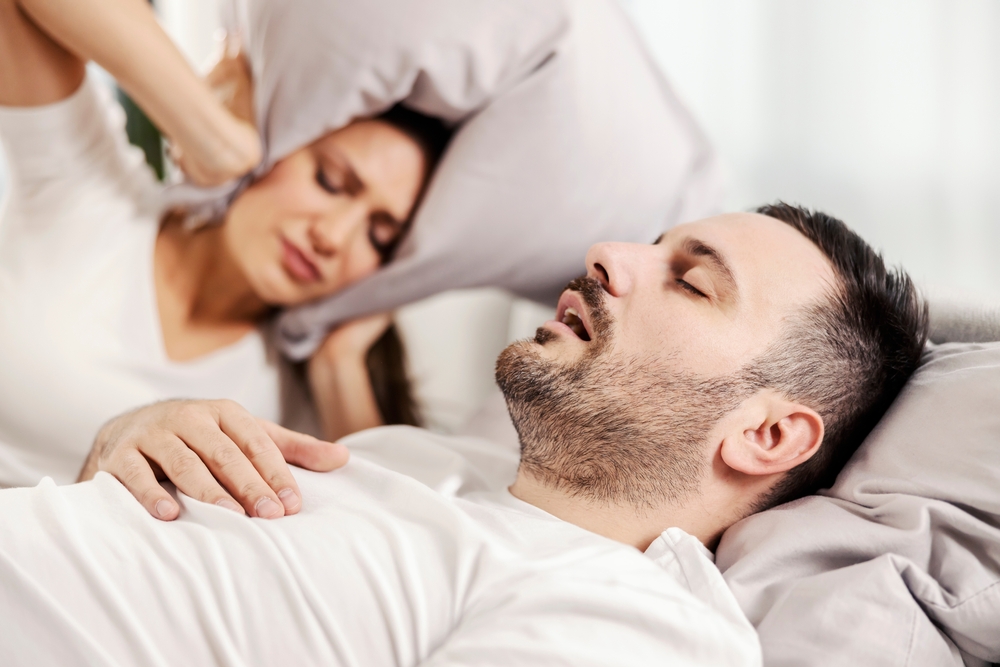
Sleep apnea is a dangerous condition that can considerably impact your partner’s health and your quality of sleep. If your partner’s loud snoring keeps you up at night, it may be a sign of sleep apnea. It is possible, however, to have sleep apnea without snoring and it’s also possible to have snoring without having sleep apnea. If your partner’s snoring disturbs your sleep, getting a professional diagnosis is crucial, as untreated sleep apnea can contribute to severe health problems.
What is obstructive sleep apnea?
Obstructive sleep apnea (OSA) is a widespread sleep disorder affecting millions of Americans. This condition triggers repeated interruptions in breathing throughout the night, which can occur hundreds of times. Usually, a partial or total obstruction of the airways is the cause of these disruptions, and that causes the diaphragm and chest muscles to do a lot of additional work to breathe. When breathing resumes, it is frequently coupled with a loud gasp or a body jerk.
Heart rhythm disturbances and reduction of oxygen flow to vital organs can be outcomes of chronic OSA which can also prevent you and your partner from achieving the rest needed to be healthy. Although children and younger people can develop sleep apnea, it’s normally a condition that impacts people who are over 50 and who are often overweight.
Sleep apnea symptoms
You will observe the signs of sleep apnea even while your partner is entirely unaware of the condition. Common indications of sleep apnea include:
- Difficulty concentrating
- Morning dry mouth and headaches
- Dizziness in the morning
- Frequent nighttime urination
- Sudden awakenings with choking or gasping for air
- Loud snoring
- Daytime exhaustion and excessive sleepiness
Deep snoring followed by a period of silence then abrupt choking or gasping is a telltale sign. The result is often a feeling of being unrested for both partners.
What are the health concerns of OSA?
Health and well-being can be severely affected by sleep apnea. Job performance can be impacted by poor concentration and car crashes can be the consequence of daytime sleepiness. Diabetes and high blood pressure are even more significant health risks of OSA. People with sleep apnea are more likely to experience heart attacks due to oxygen deprivation, and conditions including stroke and atrial fibrillation are also associated with OSA.
Being overweight is a substantial risk factor for sleep apnea, and the condition itself makes losing weight more challenging. Memory problems, known as mild cognitive impairment (MCI), and depression are additional concerns linked to neglected sleep apnea.
Leaving sleep apnea undiagnosed and untreated can be dangerous. Numerous celebrities have died due to complications of sleep apnea, notably, James Gandolfini, Carie Fisher, Jerry Garcia, and Reggie White.
Taking action for better health
It’s crucial that you have a conversation with your partner if you are observing symptoms of sleep apnea. For the sake of both, their health, and your well-being, consider finding professional help. The majority of the physical and emotional problems associated with OSA can be relieved by successful treatment after being diagnosed with a complete sleep study and evaluation.